Well intervention simulator tops off Shell’s new advanced well control course
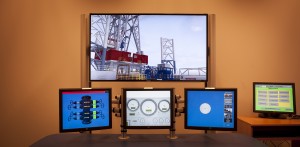
By Joanne Liou, editorial coordinator
As the industry seeks oil from more unconventional reservoirs, venturing to deeper waters and harsher environments, more wells are being drilled per barrel of oil produced, thus increasing the risk for HSE incidents. Shell is approaching the challenge by raising its well control standards and hopes to be an example for the industry to follow. Last week, the company debuted a new well intervention simulator – the final piece to its advanced well control course, implemented earlier this year – during a media showcase at the Shell Exploration & Production International Centre in Rijswijk, The Netherlands. The well simulator was developed by Shell this year and was launched in a pilot course in the first week of December.
“The aim is to raise the industry standards,” Bernd van den Brekel, learning manager wells at Shell, said.
Shell has already received WellCAP Plus accreditation for the course. About 170 companies are WellCAP-accredited, while nine companies, including Transocean and Chevron, are WellCAP Plus-accredited. Shell is using the simulator to bring the simulation component into their WellCAP Plus model, which goes beyond the requirements. The advanced well control course is mandatory for Shell’s supervisory staff every two years, and once accreditation is obtained, Shell will require its contractors to complete it, too.
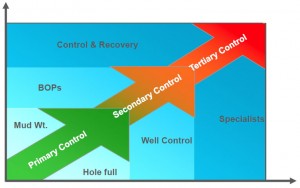
Shell has defined three levels of well control: primary, secondary and tertiary. Primary refers to control during the drilling phase with mud weight. Secondary refers to well control with a blowout preventer, and tertiary refers to a worst-case scenario – a blowout. The goal of the course is to focus on the primary and secondary levels to prevent the incident from reaching the tertiary level. Specialists are trained to handle incidents on the tertiary level.
Barriers are a constant theme in the course. While people of all levels of experience might know what the well control barriers are, the problem is that they might not be aware of the barriers at different stages of the operation. “If you change one thing, do you understand what that means in terms of your barriers and contingency planning?” Mr van den Brekel asked. “What will you do if something does go somewhat unexpectedly wrong?” Although training classes alone cannot eliminate human errors, Shell believes its advanced course is a step to prevent avoidable outcomes and ensure competence to react to the unexpected.
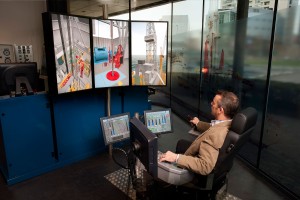
Advanced well control course
Shell’s advanced well control course is divided into different focus areas: well engineering surface, well engineering subsea, completion and well intervention surface, and completion and well intervention subsea. The well engineering courses were rolled out earlier this year in four locations in The Netherlands, US and China. “We’ve delivered 28 courses this year and trained 198 people this year (in well engineering),” Mr van den Brekel said. The completion and intervention course had a later start due to the lack of a good simulator. “On the completion and intervention side, the simulators that were available focused very much on how to operate the equipment, not so much about simulating the commanding and control type scenarios or well control scenarios.”
Shell’s well intervention simulator utilizes touch screens for students to communicate decisions and viewing screens to see the outcome of their commands. The machines are equipped with sound to re-create pressures and a more realistic working environment. The well intervention course covers coiled tubing, electric line, slick line, hydraulic workover and snubbing. Human dynamics is also included. “You can train and train, but some people may still react differently under pressure,” Mr van den Brekel said. “If you do a lot of drills and put people in scenarios either on a simulator or a rig-simulated scenario, the more predictable behaviors we get.”
By incorporating simulator time following study of an online curriculum and case studies, Shell believes it increases student engagement to enhance learning. “The simulators really add value. You can discuss problems in a classroom setting, but it’s relatively cozy, relatively safe. And if you don’t know the right answer, maybe you just don’t say anything and you wait until somebody gives the answer,” Mr van den Brekel explained. “If you put people on the simulator, it becomes a lot more stressful. Simulators have noise, you have the graphics, alarms will go off, phones will start ringing and you need to take decisions. You cannot hide.”
The course is complete after a final exam given by an external source. “We don’t want to do the exam internally,” Mr van dan Brekel said. “We want to make sure it is externally accredited. We have agreed with IWCF that they administer the exam so that we have complete independence of the instructor and the exam.”
Shell believes the advanced well control course is a differentiator for the company, but “it’s not our intention to keep that to ourselves,” Mr van dan Brekel stated. From the start of its development last year, Shell has engaged IADC and IWCF and has presented the course at various conferences and meetings around the world.
Course participants have provided positive and constructive feedback, with one result being Shell bumping simulator time from 30% of the course to 50%. “In general, it is very well received,” Mr van den Brekel said.
Some students have to realize that well control is not exclusive to extremely difficult concepts; rather it’s more about the basics. “People are still in the frame of mind in the tertiary well control area,” he added. “We make them aware of barriers.”



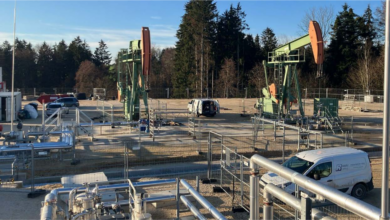
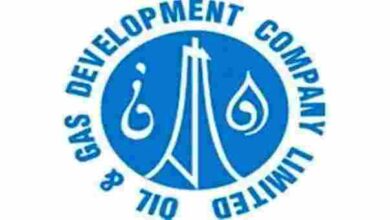
Simulators that focus on cooperation, commanding, delegation, handling stress etc. and not only on how to operate equipment has also been a task we have worked with for nearly four years – and with success.
Lack of training in these areas cause many near-misses, incidents and a lot of money for our industry. See how we solved it by virtual simulators, were you train in teams whenever you want wherever you are: http://www.shelterland-int.com
good day I am interested in buying the simulator course of drilling petroleum want to know how this costing well control